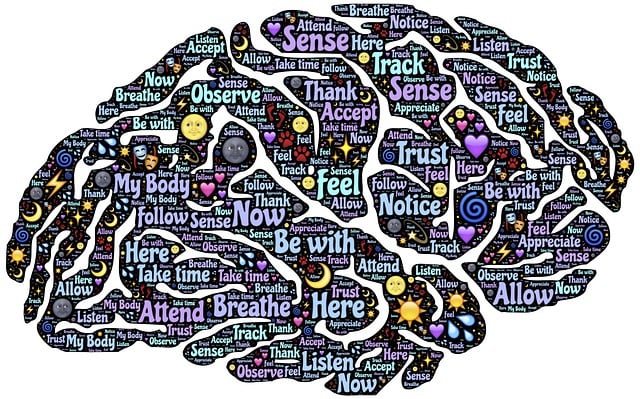Emotional intelligence (EI) is crucial for personal and professional well-being, with therapy offering a transformative path for adults lacking EI skills. American Sign Language (ASL) therapy provides a unique visual-spatial approach to emotional expression, enhancing articulation, empathy, and coping strategies. This inclusive practice addresses cultural sensitivity in mental healthcare and advocates for equitable access through policy analysis. For those aiming to boost EI, structured sessions with trained professionals create safe spaces for self-discovery, leading to improved mood management and resilience. ASL, with its focus on body movement and facial expressions, is an effective tool within therapy programs, promoting emotional healing, active participation in workshops, and deeper understanding of non-verbal cues. Techniques like cognitive-behavioral therapy (CBT) and mindfulness meditation teach clients emotional regulation skills, leading to better social interactions. High EI benefits ASL interpreters by enabling them to grasp communication nuances accurately and empathetically.
Emotional intelligence (EI) is a powerful tool that can significantly impact adult life, fostering better relationships, enhanced self-awareness, and improved decision-making. This article delves into the profound effects of EI, exploring its development through therapy and innovative methods like American Sign Language (ASL). We’ll guide you through understanding EI’s core components, the role of therapy in adult empowerment, and practical daily practices to boost your emotional intelligence. Additionally, real-life success stories will inspire you to unlock your EI potential.
- Understanding Emotional Intelligence and its Impact on Adult Life
- The Role of Therapy in Enhancing Emotional Intelligence for Adults
- American Sign Language (ASL) as a Tool for Emotional Expression and Learning
- Strategies for Daily Practice to Build Emotional Intelligence
- Real-life Applications: Success Stories of Emotional Intelligence Development
Understanding Emotional Intelligence and its Impact on Adult Life

Emotional intelligence (EI) is a crucial aspect of human interaction and well-being that often goes unnoticed until its absence becomes a challenge. It involves recognizing, understanding, managing, and effectively utilizing emotions, both one’s own and others’. In adult life, EI serves as a powerful tool for navigating complex personal and professional relationships. Individuals with high emotional intelligence are better equipped to handle stress, manage conflicts using conflict resolution techniques, and foster strong connections through cultural sensitivity in mental healthcare practice.
For adults seeking support, therapy can play a pivotal role in enhancing EI. American Sign Language (ASL), as a visual-spatial language, offers a unique approach to emotional expression and communication. Through ASL therapy, individuals can learn to articulate their emotions more effectively, improve their empathy towards others, and develop better coping strategies. Moreover, this inclusive practice supports diverse populations, considering cultural sensitivity in mental healthcare and advocating for equitable access to mental health services through policy analysis.
The Role of Therapy in Enhancing Emotional Intelligence for Adults

For adults looking to enhance their emotional intelligence, therapy serves as a powerful tool that goes beyond simple problem-solving. Through structured sessions with trained professionals, individuals can explore and understand their emotions in depth. Therapy provides a safe space for reflection, where personal experiences are dissected to foster self-awareness—a cornerstone of emotional intelligence. This process is especially beneficial when tailored to the unique needs of adults who may have developed coping mechanisms or patterns that hinder genuine emotional expression.
American Sign Language (ASL) therapy is one specialized approach gaining traction. By incorporating ASL into therapeutic practices, professionals cater to the growing deaf and hard-of-hearing population. This method not only improves communication but also facilitates a deeper exploration of emotions, as non-verbal expressions can be powerful indicators of inner states. Ultimately, therapy equips adults with robust emotional intelligence tools, leading to better mood management and enhanced resilience in their daily lives.
American Sign Language (ASL) as a Tool for Emotional Expression and Learning

American Sign Language (ASL) offers a unique and powerful tool for individuals seeking to enhance their emotional intelligence and communication skills. Beyond its primary function as a language for the deaf community, ASL provides an alternative means of expressing emotions, which can be incredibly beneficial for therapy and mental health education programs. By learning ASL, adults can explore emotional healing processes and develop a deeper understanding of non-verbal cues, making it an invaluable asset in various therapeutic settings.
Incorporating ASL into therapy sessions allows for more nuanced expression and interpretation of feelings. This visual-spatial language encourages individuals to focus on body movement and facial expressions, which are essential components of emotional communication. Moreover, it promotes active participation in mental health workshops, fostering engagement and interaction during stress management programs. The design of ASL can facilitate a more inclusive environment, empowering individuals to take control of their emotional expression and well-being.
Strategies for Daily Practice to Build Emotional Intelligence

Building emotional intelligence (EI) is a continuous journey that requires dedication and practice. Incorporating strategies into your daily routine can significantly enhance your ability to understand, manage, and connect with your emotions. One powerful tool for adults seeking to boost their EI is therapy, which provides a safe space to explore feelings and develop healthy coping mechanisms. Through therapy sessions, individuals learn to navigate emotional landscapes, fostering self-awareness and empathy towards themselves and others.
In addition to professional guidance, simple yet effective practices like mindfulness meditation can make a positive impact. Dedicating just a few minutes each day to focus on your breath and observe thoughts without judgment allows for mental clarity and emotional regulation. This ancient practice has been shown to reduce burnout prevention and enhance overall well-being. Combining these techniques with American Sign Language (ASL) can further enrich the experience, as it offers a unique means of non-verbal communication that promotes understanding and connection, especially in reducing the mental illness stigma reduction efforts by fostering open dialogue about emotions.
Real-life Applications: Success Stories of Emotional Intelligence Development

Emotional intelligence (EQ) has real-life applications that span various aspects of our lives, from personal relationships to professional success. For adults seeking to enhance their EQ, therapy can play a pivotal role. Professional therapists utilize techniques like cognitive-behavioral therapy (CBT) and mindfulness meditation to help clients develop emotional regulation skills. This process involves understanding one’s emotions, managing them effectively, and using this self-awareness to improve social interactions.
One notable success story is seen in the field of American Sign Language (ASL) interpretation. Interpreters with high EQ can better grasp the nuances of human communication, ensuring more accurate and empathetic translations. Social skills training, a component of EQ development, becomes especially valuable here as it enhances their ability to connect with individuals from diverse backgrounds. By combining these techniques with mindfulness meditation practices, ASL interpreters can excel in their roles, fostering stronger connections and effective communication within deaf communities.
Emotional intelligence is a powerful tool that enhances personal growth and relationships. By understanding and managing emotions, adults can significantly improve their well-being and success in various aspects of life. The strategies outlined in this article, combined with therapy tailored to individual needs and the unique benefits of American Sign Language for emotional expression, offer practical paths to building emotional intelligence. These approaches empower folks to navigate life’s challenges more effectively, fostering personal growth and stronger connections with others.









